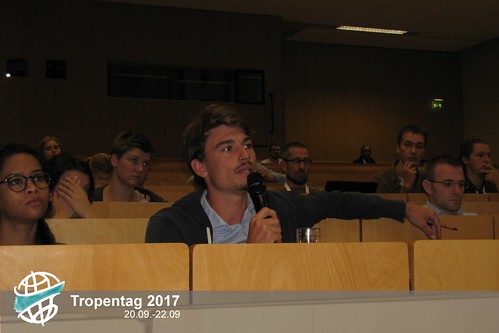ICRAF
ICRAF on Improving Agroforestry Farming Systems
Fri, 09/22/2017 - 10:01 — mustamin.fadli
Agroforestry Won't Save the World, but our Planet
Thu, 09/21/2017 - 19:06 — marlemkeAccording to the numerous audience's questions, agroforestry is in demand.
Of course! In terms of water and nutrient efficiency, trees are optimum, and hence are key for solving problems like nitrogen leaching and drought mitigation. Moreover, they can provide an additional income source for (smallholder) farmers in terms of fruit, medicine and timber. Their ecological value cannot only be reduced to shade provision and hydraulic lift for water and plant nutrients, they also function as a shelter belt for annual crops nearby. Trees also drastically reduce wind speed, minimizing transpiration. Niels Thevs from ICRAF reinforced these points in his oral presentation.
As far as resource efficiency is concerned, trees can substantially contribute to mitigate climate change and secure the existence of smallholders.





